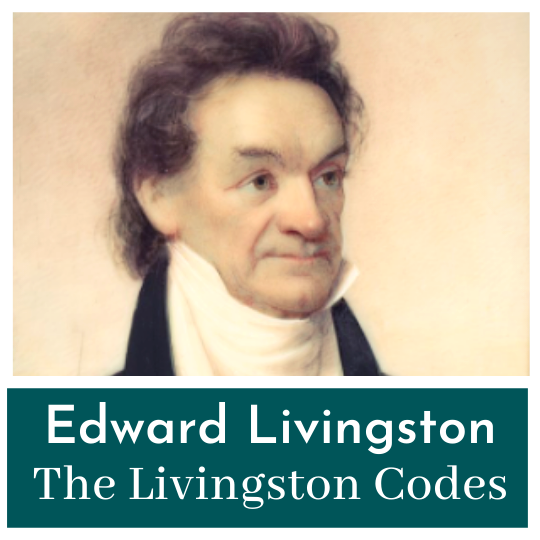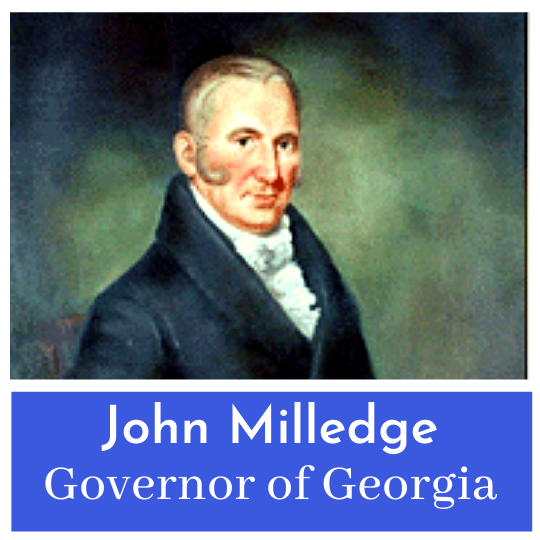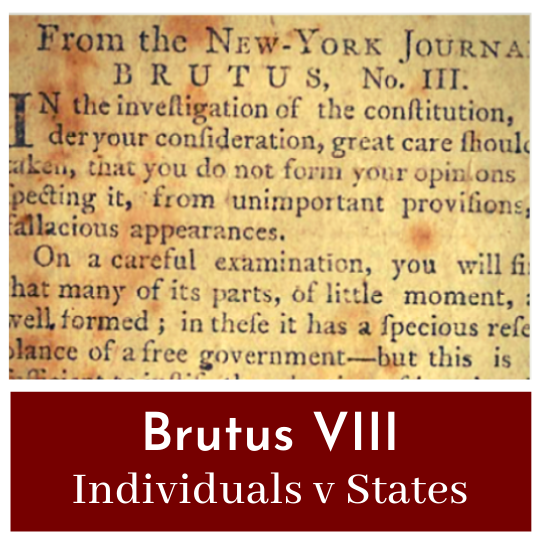Early American Prison Reform - Edward Livingston's Codes
Edward Livingston was a US Secretary of State and author of the Livingston Codes.
Edward Livingston
Edward Livingston was born into the wealthy Livingston Family, his older brother Robert being one of the most important Founders of New York.
Edward studied law at Princeton, graduating in 1781, just as the Revolutionary War was coming to a close.
Just after his 30th birthday, Livingston was elected to the US House of Representatives.
During this time he became associated with the Anti-Administration/Democratic-Republican Party and began a lifelong friendship with another young Congressman...Andrew Jackson.
Mayor of NYC
When he returned home in 1801, Edward was appointed as a Federal Attorney for New York and was chosen as Mayor of NYC.
Unfortunately, the city suffered from a yellow fever outbreak that he actively tried to combat. Livingston himself fell ill with the disease, though he luckily recovered.
While he was out of commission, one of his aids misused public funds which he was responsible for.
Edward resigned both his positions and moved to Louisiana to start anew.
Louisiana
While in New Orleans, Livingston built a successful law practice, with which he would eventually repay all of the money that was lost while he was in New York.
He was also a major part of Louisiana’s transition to territory of the United States (after the Louisiana Purchase) and, later, to a State.
Edward was responsible for transitioning Louisiana’s legal codes from the Spanish/French tradition to English.
During the War of 1812, he served as an aide-de-camp to his old friend Andrew Jackson.
The Livingston Codes
Livingston was responsible for writing a new legal code for Louisiana after Statehood was established.
The Livingston Code, as it came to be known, took almost a decade to complete.
It was praised throughout the western world, especially notable for its ideas on prison reform (outlawing capital punishment and replacing ‘forced labor’ with the idea that labor could be used as a reward for good behavior).
Although these Codes were never used in the United States, they would be given to, and implemented in, the nation of Guatemala.
Additionally, the Livingston Codes inspired prison reform in America and around the world.
Secretary of State
In the late 1820’s Edward Livingston would return to the US Congress for the first time in 30 years, this time representing Louisiana.
After almost a decade in this position, he spent two years in the Senate. This was immediately followed by appointment (by his buddy Jackson) to US Secretary of State.
The final public service of Livingston’s lengthy career was a two year stint as Minister to France before retiring to his original home of New York.
Here are just a few more members of the Livingston Family:
Robert Livingston - The Chancellor
Philip Livingston Attends All The Congresses
Peter Van Brugh Livingston Guides New York Patriots
The premier 19th century historian George Bancroft is the only person I know who wrote a biography for Livingston.
Pick up a copy through the Amazon affiliate link below (you’ll support this site, but don’t worry, Amazon pays me while your price stays the same).
Want to get fun American Revolution articles straight to your inbox every morning?
Subscribe to my email list here.
You can also support this site on Patreon by clicking here.
Thanks for your support!
Further Reading:






